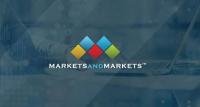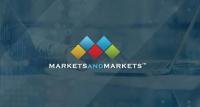(EMAILWIRE.COM, December 14, 2024 ) Wearable Injectors Market in terms of revenue was estimated to be worth $8.4 billion in 2023 and is poised to reach $15.1 billion by 2029, growing at a CAGR of 10.3% from 2023 to 2029 according to a new report by MarketsandMarkets.
The steady rhythm of chronic illnesses like diabetes, autoimmune disorders, and pain management pulsates across continents. These vast, unmet needs create a fertile landscape for innovation, and wearable injectors, with their precise dosing and user-friendly features, harmonize perfectly with the demand for convenience and adherence. A vibrant melody of research and development amplifies the market’s tempo. Leading manufacturers collaborate with universities and research institutions, composing a symphony of technological advancements. This collaborative spirit pushes the boundaries of miniaturization, data integration, and diverse drug delivery capabilities, propelling the market forward. The healthcare landscape increasingly emphasizes empowering patients to manage their own health. Wearable injectors align perfectly with this trend, allowing individuals to take control of their treatment with greater autonomy and comfort. This shift in focus fuels market demand as patients seek convenient and discreet medication delivery solutions. The initial focus on insulin delivery in diabetes management is rapidly evolving into a richer polyphony of applications. Wearable injectors are now being explored for administering vaccines, antibiotics, pain medication, and even complex biologics. This diversification opens up new market segments, adding vibrant layers to the overall growth symphony.
Download an Illustrative overview: https://www.marketsandmarkets.com/pdfdownloadNew.asp?id=100771004
“On Body injectors segment accounted for the largest share during the forecast period.”
Precise dosing capabilities and extended wear times ensure consistent medication delivery, minimizing missed doses and amplifying treatment efficacy. This translates to a more harmonious clinical outcome, particularlyfor chronic conditions where adherence is crucial. On-body injectors liberate patients from the confines of clinical settings and syringes, enabling self-administration at home or on the go. This convenience not only enhances patient autonomy but also reduces hospital-acquired infection risks, adding a note of safety to the melody. Unlike traditional injections, on-body devices deliver medication with gentle, low-pressure diffusion, mitigating the discordant notes of pain and anxiety. This comfort empowers patients to focus on healing rather than the mechanics of administering medication.
“The diabetes segment accounted for the largest share during the forecast period.”
The ever-rising chorus of people diagnosed with diabetes creates a fertile ground for innovative drug delivery. Wearable injectors, with their precise dosing and user-friendly features, offer a perfect counterpoint to traditional syringes, simplifying insulin administration and enhancing adherence. Imagine dispensing life-saving medication discreetly from a device worn on your body, liberating you from clinical visits and needles. This is the transformative power of wearable injectors, allowing patients to manage their diabetes with greater autonomy and convenience, a melody resonating deeply with individuals seeking freedom and control. Missed insulin doses can disrupt the delicate balance of a diabetic’s life. Wearable injectors harmonize with the need for consistent medication delivery, offering extended wear times and smart reminders that ensure treatment efficacy and minimize the discordant notes of missed injections.
“Spring based technology segment accounted for the largest share of the global wearable injectors market.”
Unlike their springless counterparts, these elegant devices orchestrate medication delivery with unwavering accuracy. Their fluid mechanics ensure consistent flow, minimizing the risk of errors and maximizing therapeutic effectiveness, particularly for precise micro-dose medications. Injections don’t always have to be discordant notes of pain. Spring-based systems deliver medication with a smooth, low-pressure flow, minimizing discomfort and anxiety for patients, especially those with needle phobias. This gentle touch allows them to focus on healing, not the mechanical act of administration. Advancements in miniaturization and microfluidics promise sleeker, more efficient designs, while material advancements will likely harmonize cost and functionality. As manufacturers optimize power consumption and battery life, these miniature artists will take center stage in the wearable injector market, captivating audiences with their precise grace and sustainable charm.
“Hospitals and clinics end-user segment held the largest market share during the forecast period of the wearable injectors market.”
Hospitals and clinics are witnessing a surge in wearable injectors, thanks to their ability to streamline medication delivery, boost patient empowerment, and even cut costs. These miniature marvels enable faster, more consistent administration, minimize missed doses, and empower patients with self-management. The financial harmony comes from optimized workflows, reduced readmissions, and improved adherence. While concerns around cost, data privacy, and accessibility remain, advancements in miniaturization and user-friendliness promise a future where wearable injectors play a powerful melody in hospital care.
“North America to witness significant growth during the forecast period.”
In 2022, North America held the largest market share for the wearable injectors market. In the global orchestra of wearable injectors, North America conducts the show, its market pulsating with innovation, favorable reimbursement policies, and a growing preference for patient-centric solutions. This fertile ground fosters advancements in miniaturization, diverse drug delivery, and data security, all harmonizing to propel the market forward. While affordability and accessibility remain discordant notes, research promises a future where wearable injectors empower millions, one convenient dose at a time. North America leads the wearable injector market, fueled by its tech prowess, generous insurance, and focus on patient control. Tiny, diverse devices and secure data keep the market booming, though affordability and accessibility remain challenges. Soon, these injectors will empower millions across the continent, one convenient dose at a time.
Request Sample Pages: https://www.marketsandmarkets.com/requestsampleNew.asp?id=100771004
Wearable Injectors Market Dynamics:
Drivers:
1. High prevalence of diabetes
Restraint:
1. Oral insulin as alternative method of drug delivery
Opportunities:
1. Increased adoption of on body wearable injectors
Challenge:
1. Needlestick injuries
Key Market Players of Wearable Injectors Industry:
Some of the prominent players in the wearable injectors market are Amgen Inc. (US), Medtronic PLC (Europe), Insulet Corporation (US), Tandem Diabetes Care, Inc. (US), United Therapeutics Corporation (US), Abbvie Inc. (US), Gerresheimer AG (Germany), Becton Dickinson and Company (US), West Pharmaceutical Services Inc. (US), Ypsomed AG (Switzerland), Enable Injections (US), Subcuject APS (Denmark), Cequr Simplicity (Switzerland), Mannkind Corporation (US), Sonceboz (Switzerland), CC Bio (Japan), Elcam Drug Delivery Devices (Israel), Stevanato Group (Italy), Debiotech SA (Switzerland), Bexson Biomedical (US), Nemera (France), LTS Lohmann Therapie Systeme AG (Germany), Kymanox Corporation (US), Novo Engineering (US), and Eoflow (South Korea).
Breakdown of supply-side primary interviews:
By Company Type: Tier 1 35%, Tier 2 50%, and Tier 3 15%
By Designation: C-level 35%, Director-level 40%, and Others 25%
By Region: North America – 30%, Europe 25%, APAC 20%, Latin America 15%, Middle East & Africa 7% GCC- 3%
Get 10% Free Customization on this Report: https://www.marketsandmarkets.com/requestCustomizationNew.asp?id=100771004
Recent Developments of Wearable Injectors industry
-In February 2023, Insulet Corporation acquired the assets of Automated Glucose Control LLC (AGC), a company focused on developing and commercializing best-in-class automated insulin delivery technology. The company was involved in the development of Omnipod (Insulets star product)
-In January 2023, Tandem acquired infusion set developer, Capillary Biomedical.
In July 2022, Becton Dickinson and Company acquired Parata Systems. This acquisition will boost the market growth of BD.
-In January 2022, Enable Injections received The company received USD 215 million Series C funding. The funding will provide additional resources to onboard Enable Injections along with important new pharma partner programs and accelerate their commercialization programs and platforms with existing pharma partners.
-In September 2021, Ypsomed AG, YpsoDose single-use injector is an electromechanical pre-filled and pre-assembled patch device for 10 mL glass cartridges. Needle insertion, injection, end of injection feedback, and needle safety steps are all performed automatically. The needle remains hidden at all times and is made safe after injection and device removal.







